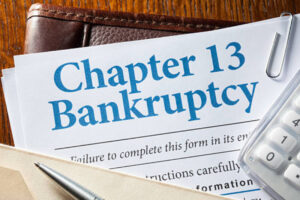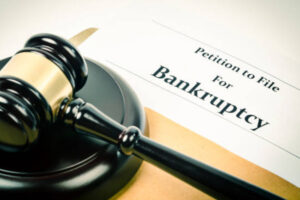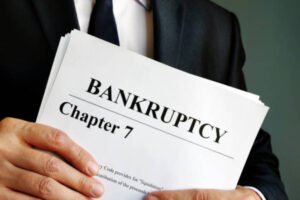In most cases, you can file bankruptcy with student loan debt if you have a documented undue hardship. The courts typically grant an undue hardship discharge only in very dire circumstances, and student loan debts may be difficult to discharge in bankruptcy.
Depending on the circumstances of your bankruptcy, you can choose from two types of repayment plans.
The first is income-based repayment, introduced on July 1, 2009. This repayment plan generally results in a lower monthly payment and meshes with the bankruptcy fee waiver.
If your loan debt exceeds your income, the court will discharge it. This method of repayment is generally recommended if you can’t make your payments.
However, private student loans will not be discharged through bankruptcy. If you have private student loans, you’re out of luck.
If you have federal student loans, your payments will continue to be guaranteed by the federal government. Federal loans can be discharged, but only if they meet the definition of “student loan” under the Bankruptcy Code.
If you fail to meet the criteria, you may qualify for forbearance or income-driven repayment plans.
Nevertheless, filing bankruptcy with student loan debt can put collections on hold for five years while you find another way to deal with your lender. This process also forces unreasonable lenders to restructure your loan.
A chapter 13 bankruptcy, also known as reorganization, proposes a 3 to 5-year repayment plan for your debts. During this time, you must pay installments according to your ability to pay them.
Once the plan is complete, you will resume your monthly payments.
Chapter 13 bankruptcy is limited in its practicality. Many people simply do not have the funds to make these payments on their own.
Depending on the type of student loan, you may qualify for a Chapter 13 bankruptcy if your income-based repayment plan is not affordable. Private student loans are harder to qualify for bankruptcy due to fewer repayment options.
In any case, a bankruptcy court can order the servicer to make your federal loan affordable.
It’s important to realize that you must meet strict eligibility requirements before you can file for bankruptcy, so make sure you know the specifics of your loan.
To allow bankruptcy to be filed for student loans, two bills have been introduced in Congress. The Fresh Start Through Bankruptcy Act of 2021 addresses federal student loans. The Private Student Loan Bankruptcy Fairness Act aims to improve the bankruptcy process for students.
Before filing for bankruptcy, you should contact an attorney. Depending on the nature of your case, it may be possible to get your student loans discharged by a bankruptcy attorney.
It is also worth your while to research different student loan bankruptcy options and consult with an attorney who has experience in dealing with student loan debt.
If you are not financially unable to pay off your debt, it may be best to seek legal help from a consumer advocacy group. They will help you apply for different repayment plans and explore loan rehabilitation.
Disclaimer: The information provided in this article is for educational and informational purposes only and should not be construed as financial, legal, or professional advice. While efforts are made to ensure accuracy, the content may not reflect the most current legal or financial developments. No representations or warranties are made about the completeness, reliability, or accuracy of this information. Results may vary. Using any information provided is solely at your own risk. Consult with a financial advisor or attorney for specific advice tailored to your situation.














